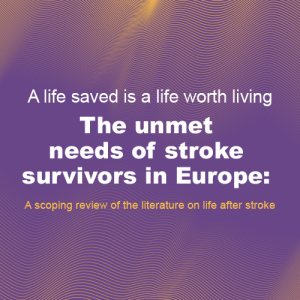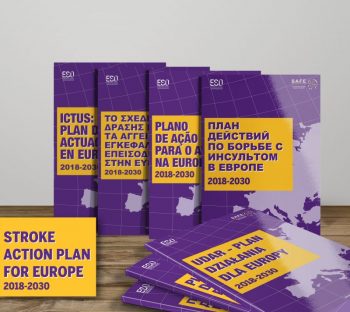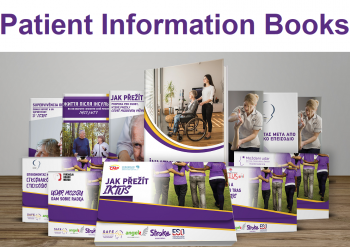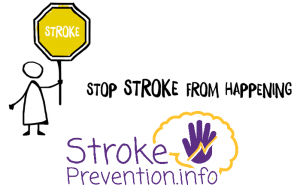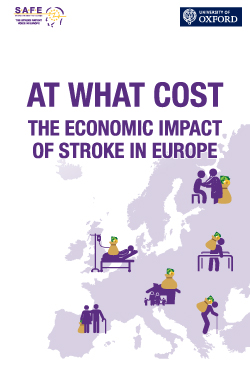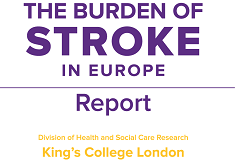
Apr 5, 2018
First published on ScienceDaily
A new study looks at what problems affect people most after a stroke and it provides a broader picture than what some may usually expect to see. Stroke affects more than just physical functioning, according to a study is published the March 28, 2018, online issue of Neurology®, the medical journal of the American Academy of Neurology.
“After a stroke, people who have only mild disability can often have ‘hidden’ problems that can really affect their quality of life,” said study author Irene L. Katzan, MD, MS, of the Cleveland Clinic in Ohio and a member of the American Academy of Neurology. “And for people with more disability, what bothers them the most? Problems with sleep? Depression? Fatigue? Not many studies have asked people how they feel about these problems, and we doctors have often focused just on physical disability or whether they have another stroke.” (more…)

Apr 5, 2018
First published on ScienceDaily
Foreign-born adults living in the United States had a lower prevalence of coronary heart disease and stroke than U.S.-born adults in nationally representative data spanning 2006-2014, according to new research in Journal of the American Heart Association, the Open Access Journal of the American Heart Association/American Stroke Association.
Researchers from the Centers for Disease Control and Prevention compared the prevalence of coronary heart disease and stroke among U.S. adults by birthplace. The proportion of adults living in the United States who were born elsewhere has almost tripled from about 9.6 million in 1970 to 40 million in 2010. (more…)

Mar 30, 2018
Published first on ScienceDaily
A defining characteristic of stroke is the loss of motor control due to structural damage in specific brain areas. In fact, motor impairments (or deficits) are the number one complication after stroke. Losing the ability to carry out basic bodily functions, such as speaking, walking and swallowing, can be devastating for stroke survivors. Unfortunately, there are few effective recovery options beyond physical and occupational therapy to stimulate brain re-learning. While many researchers have tried to identify effective new therapies to mitigate motor function impairment and enhance quality-of-life, discoveries have been lacking. (more…)

Mar 30, 2018
Published first on ScienceDaily
Researchers at The University of Texas at Dallas have demonstrated a method to accelerate motor skill recovery after a stroke by helping the brain reorganize itself more quickly.
In a preclinical study, the scientists paired vagus nerve stimulation (VNS) with a physical therapy task aimed at improving the function of an upper limb in rodents. The results showed a doubled long-term recovery rate relative to current therapy methods, not only in the targeted task but also in similar muscle movements that were not specifically rehabbed. Their work was recently published in the journal Stroke. (more…)

Mar 28, 2018
Published first on ScienceDaily
A new device worn like a visor can detect emergent large-vessel occlusion in patients with suspected stroke with 92 percent accuracy, report clinical investigators at the Medical University of South Carolina (MUSC), Mount Sinai, the University of Tennessee Health Sciences Center and elsewhere in an article published online on March 6, 2018, in the Journal of Neurointerventional Surgery. Patients with large-vessel occlusions can then be routed to a Comprehensive Stroke Center with endovascular capabilities. In contrast, a standard physical examination achieved only 40 to 89 percent accuracy in identifying patients with large-vessel occlusion who could benefit from endovascular therapy. (more…)

Mar 28, 2018
Published first on ScienceDaily
An anti-inflammatory drug given to patients in the early stages of a stroke has been shown by researchers at The University of Manchester and Salford Royal NHS Foundation Trust to reduce harmful inflammation.
The drug, Kineret©, licenced for treating rheumatoid arthritis, was given as a small injection just under the skin without giving the patients any identifiable adverse reactions.
It is one of biologic agents transforming treatment in a range of illnesses. The protein Interleukin-1 (IL-1) is part of the body’s defences and naturally produced to combat a range of illnesses. However, scientists at the University of Manchester have previously shown IL-1 increases inflammation and brain injury following a stroke. (more…)


